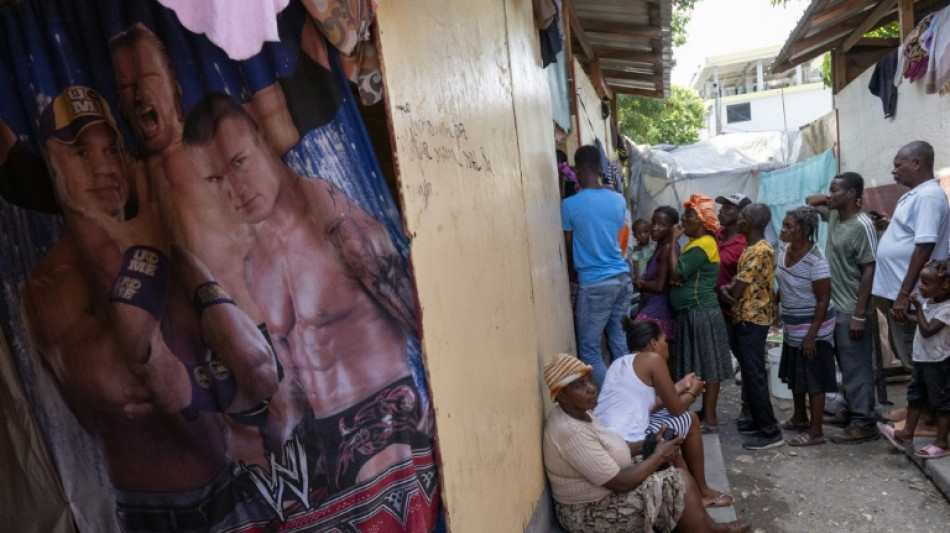
-
 Jobe Bellingham finding his feet as Dortmund head to City
Jobe Bellingham finding his feet as Dortmund head to City
-
US civil trial to hear opening arguments on Boeing MAX crash
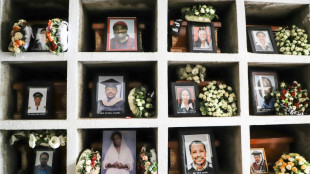
-
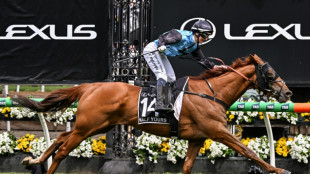 Jamie Melham on Half Yours only second woman to win Melbourne Cup
Jamie Melham on Half Yours only second woman to win Melbourne Cup
-
Myanmar scam hub sweep triggers fraudster recruitment rush
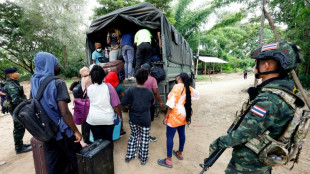
-
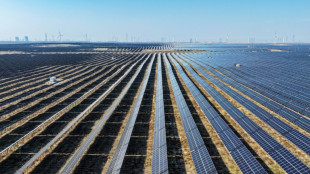 Biggest emitter, record renewables: China's climate scorecard
Biggest emitter, record renewables: China's climate scorecard
-
Floods strand people on roofs as typhoon pounds Philippines
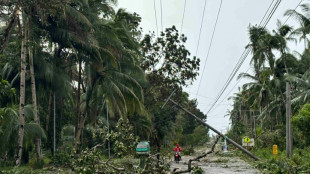
-
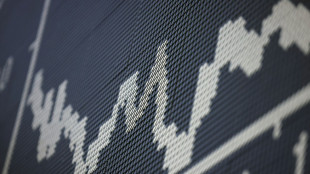 Asian markets swing as trades eye tech rally, US rate outlook
Asian markets swing as trades eye tech rally, US rate outlook
-
South Korea to triple AI spending, boost defence budget
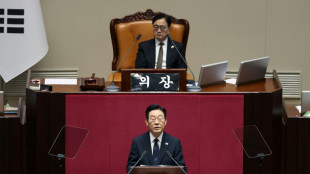
-
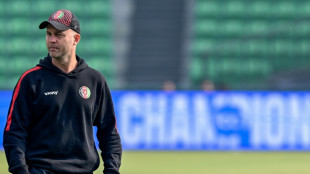 Trott to leave as Afghanistan coach after T20 World Cup
Trott to leave as Afghanistan coach after T20 World Cup
-
Late queen's fashion to go on show at Buckingham Palace
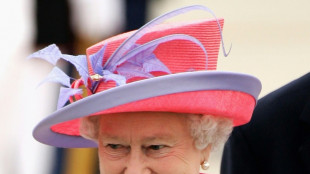
-
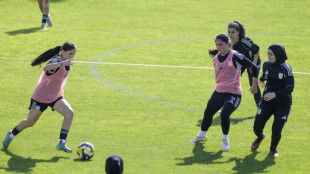 In Morocco, exiled Afghan women footballers find hope on the pitch
In Morocco, exiled Afghan women footballers find hope on the pitch
-
EU scrambles to seal climate deal ahead of COP30
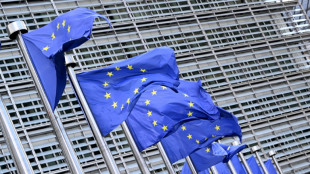
-
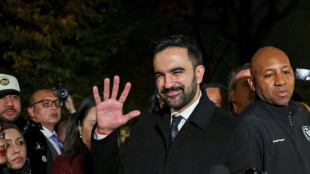 New Yorkers expected to pick leftist Mamdani in stunning election
New Yorkers expected to pick leftist Mamdani in stunning election
-
Pining for Pinochet: how crime fanned nostalgia for Chile's dictator
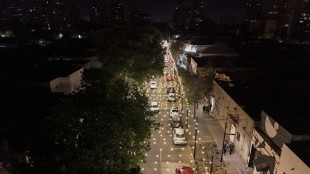
-
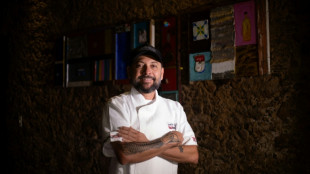 Why an Amazon chef said no to a vegan dinner for Prince William event
Why an Amazon chef said no to a vegan dinner for Prince William event
-
Cement maker Lafarge on trial in France on charges of funding jihadists
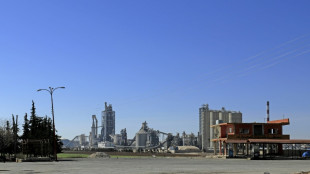
-
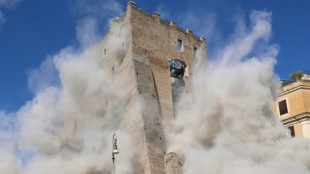 Worker dies after medieval tower partly collapses in Rome
Worker dies after medieval tower partly collapses in Rome
-
Run-machine Labuschagne in form of his life ahead of Ashes
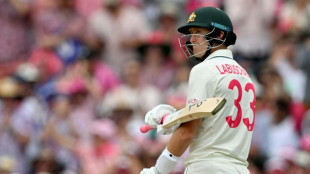
-
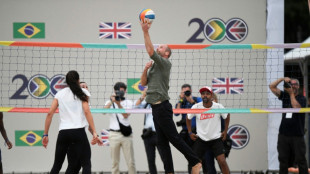 Prince William plays football, volleyball in Rio on climate trip
Prince William plays football, volleyball in Rio on climate trip
-
Jamaicans mobilize aid in aftermath of Melissa's wreckage
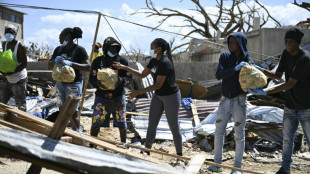
-
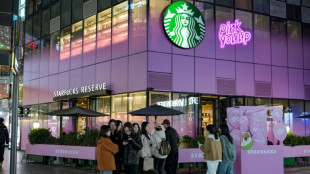 Starbucks cedes China control to Boyu Capital
Starbucks cedes China control to Boyu Capital
-
'Wild at Heart' actress Diane Ladd dies at 89

-
 Xhaka lifts Sunderland into fourth after Everton draw
Xhaka lifts Sunderland into fourth after Everton draw
-
Brazil records biggest annual fall in emissions in 15 years: report

-
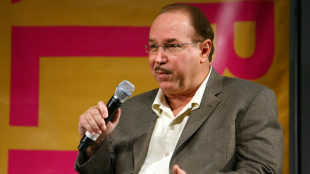 Victor Conte, mastermind of BALCO doping scandal, dead at 75: company
Victor Conte, mastermind of BALCO doping scandal, dead at 75: company
-
Trial opens in 1st US civil case on 2019 Boeing MAX crash
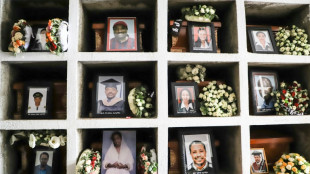
-
 Barrett brothers out of All Blacks' clash with Scotland
Barrett brothers out of All Blacks' clash with Scotland
-
Medieval tower partially collapses in Rome, trapping worker
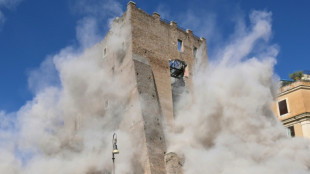
-
 Arsenal's Arteta says injured Gyokeres out of Slavia Prague tie
Arsenal's Arteta says injured Gyokeres out of Slavia Prague tie
-
Alonso says 'quality' Wirtz helped get him Real Madrid job
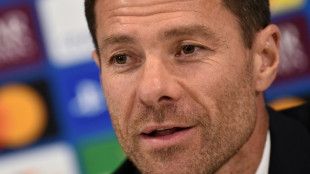
-
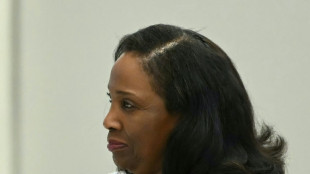 US Fed's Cook warns inflation to stay 'elevated' next year
US Fed's Cook warns inflation to stay 'elevated' next year
-
Blue heaven: huge crowds salute Los Angeles Dodgers in victory parade

-
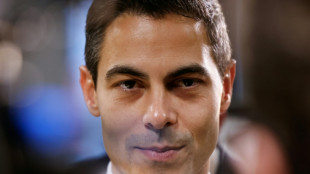 Dutch centrist Jetten clinches election win: final tally
Dutch centrist Jetten clinches election win: final tally
-
Mamdani extends olive branch to anxious NY business community
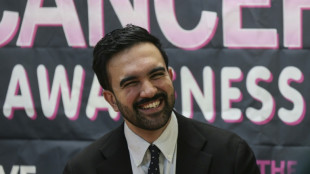
-
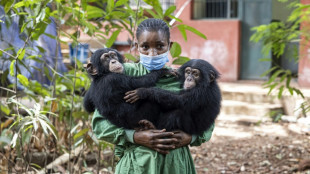 Sierra Leone chimpanzee sanctuary reopens after deforestation protest
Sierra Leone chimpanzee sanctuary reopens after deforestation protest
-
Shein bans sex dolls after France outrage over 'childlike' ones

-
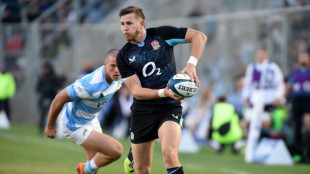 England full-back Steward doubtful for Autumn rugby clash with Fiji
England full-back Steward doubtful for Autumn rugby clash with Fiji
-
Bayern know how to 'hurt' PSG, says Neuer
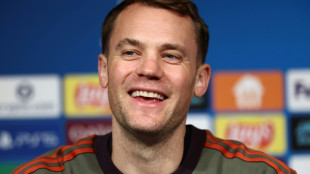
-
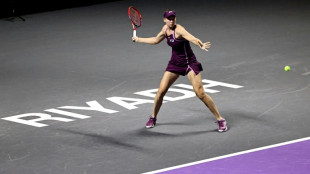 Rybakina downs Swiatek to reach WTA Finals last four
Rybakina downs Swiatek to reach WTA Finals last four
-
Ex-France international Ben Yedder to stand trial on rape charges
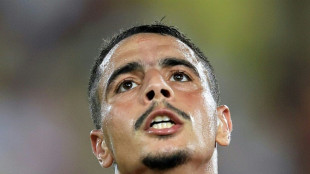
-
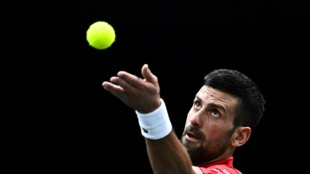 Djokovic confirmed for ATP Finals, says Italian federation boss
Djokovic confirmed for ATP Finals, says Italian federation boss
-
Trent should be remembered for 'great' Liverpool moments, says Slot

-
 Stock markets diverge despite boost from AI deals
Stock markets diverge despite boost from AI deals
-
Prince William awed by Rio on climate-focused trip to Brazil
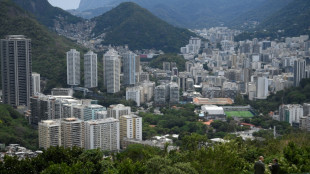
-
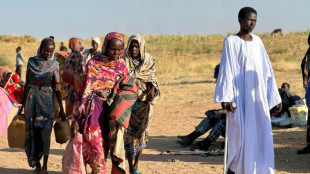 Violence in Sudan's El-Fasher could be war crimes, says top court
Violence in Sudan's El-Fasher could be war crimes, says top court
-
Rybakina downs Swiatek in WTA Finals
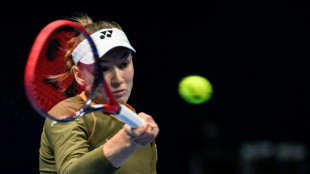
-
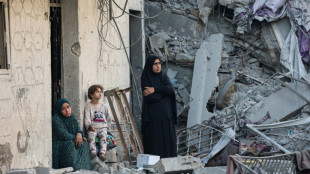 Turkey, Muslim allies say Palestinian self-rule key to Gaza future
Turkey, Muslim allies say Palestinian self-rule key to Gaza future
-
Tens of thousands shelter as typhoon slams into Philippines
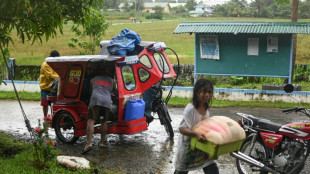
-
 Stock markets rise as tech sector buoyed by fresh AI deal
Stock markets rise as tech sector buoyed by fresh AI deal
-
Vitinha says PSG-Bayern Champions League clash will show who's 'best'


Victims of Haiti's gangs face health system in crisis
Suffering from gunshot wounds to the leg and buttocks, 31-year-old Olivier Vilminio sought treatment in a hospital in Haiti's capital, Port-au-Prince.
But even there, he was not safe from a surge of gang violence that has upended life in the impoverished Caribbean nation and made medical care even more difficult to attain.
Armed gang members raided the hospital, forcing Vilminio to flee, he told AFP recently from a school where he and other displaced people now reside.
Needing crutches to walk, the father of two young daughters said his wounds have left him in constant pain.
"I've run out of medication. The painkiller I should be taking is (the powerful opioid) tramadol, and it's extremely expensive, 750 Haitian gourdes a pack," he said, or around $6.5.
He said he hoped to possibly get antibiotics from Alima, an NGO operating mobile medical units that was visiting the school-turned-refuge that morning.
After years of gaining ground across Haiti's capital, gangs launched a wave of coordinated attacks in late February calling for then prime minister Ariel Henry to resign.
He announced in early March that he would step down and hand executive power to a transitional council responsible for leading the country toward elections. No vote has been held in Haiti since 2016.
A new prime minister and cabinet have since taken office, but their task of restoring order in the nation of 10 million is monumental.
- No power, money for X-rays -
Gangs control most of the sprawling capital and have repeatedly attacked hospitals and clinics, making off with much-needed medical supplies.
The UN International Organization for Migration (IOM) said Tuesday that about 580,000 Haitians have now fled their homes due to gang violence, a 60 percent spike since March.
Another gunshot victim at the center is Marie Joanne Laguerre, 24, who took a stray bullet to the back of her head while standing outside the school.
"At first, I thought I'd been hit by a stone," she told AFP.
Three months later, she still has not been able to get an X-ray.
"I went to the hospital and they bandaged me up, they gave me medicine" but not an X-ray, she said, as there was a power outage that day.
"Now I have no money to do it. I still don't know what's inside my head."
The hospitals that remain open in Haiti are struggling to stay afloat, frequently facing shortages of fuel for their generators and other materials.
Jean Philippe Lerbourg, medical director of Hopital La Paix, told AFP he considers his establishment "lucky" to have all its services remain open.
But since February the hospital has been "under pressure," taking in patients from other locations that have been forced to close, the doctor said.
- Hospitals over capacity -
"We exceeded our capacity a long time ago," Lerbourg said, adding that budget constraints have forced the hospital -- a public facility -- to charge patients for medical equipment.
"We try to do as much as possible to give free emergency care... but once emergency care is over, if you come in for surgery, you don't pay the surgeon, but all the materials you'll need, you're going to have to buy," he said.
For most Haitians "the situation is extremely difficult," he said, with many patients displaced from their homes or freshly unemployed.
Lerbourg said his hospital saw a peak in gunshot wound cases on February 29, the day armed gangs launched their concerted attacks.
Sitting on a hospital bed, 40-year-old Vilsaint Lindor has a large bandage wrapped around his waist.
A few days earlier, he was at home and about to take a shower, when a gunman knocked on his door.
The man "asked me to give him everything -- phone, computer, money," Lindor said.
"They took everything and when they couldn't take the inverter, he shot me," he said bitterly.
"I'm just at home, and the gangs come and rob me."
H.Weber--VB




